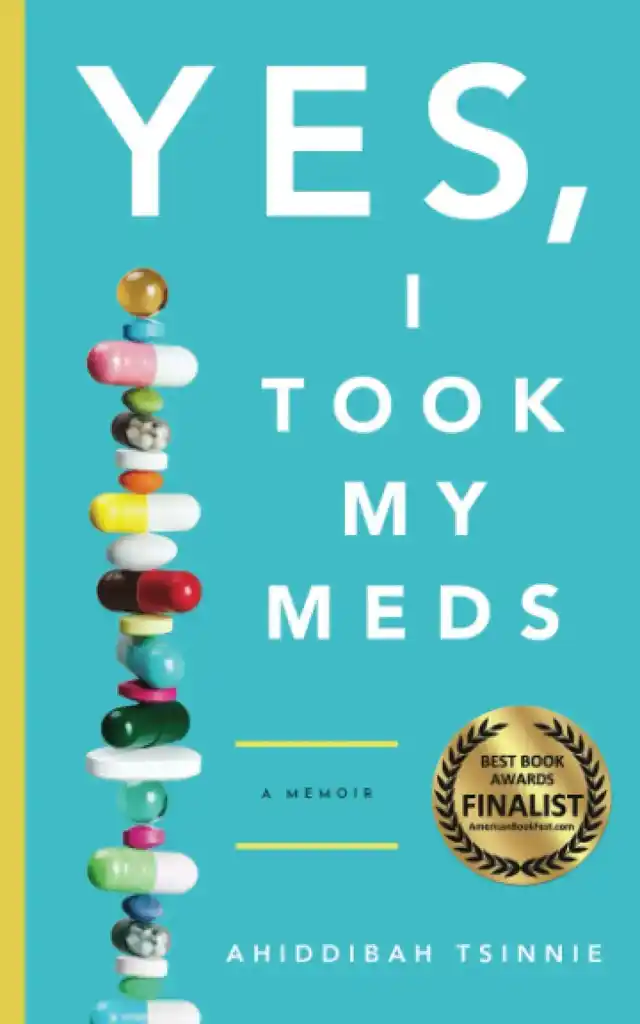Ahiddibah Tsinnie’s debut memoir Yes, I Took My Meds needed an editor with a deep understanding of mental health. Through Reedsy, she found a professional who rose to the occasion.
Comparing sample edits of the toughest chapters
I first dove into self-publishing when a co-worker’s daughter introduced me to Reedsy. I was completely in awe of all the resources available, but it took me some time to figure out what kind of editor I exactly needed. I’m an experienced writer when it comes to blogging — my book initially started out as a series of posts — but I didn’t have any experience in long narratives. Through Reedsy’s editing guide I realized I definitely wanted a copy edit but was open for suggestions.
When it came to picking a specific editor, there were many qualified candidates to choose from. But my story dealt with suicide and sexual abuse, and required someone with more than just an impressive resumé: I needed an editor who could handle these tough subjects.
To find the right candidate, I sent my hardest chapters to the editors on my shortlist and requested a sample edit. From this exercise, Margaret Diehl stood out as the best choice. She was able to identify the love, honesty, and heart in those two chapters, and I really connected with her matter-of-fact feedback style. I felt that Margaret really wanted me to tell my story, and most importantly, that she thought I had a story worth telling.
Structuring events into a coherent book
From the start of the collaboration, Margaret simultaneously gave me copy editing and developmental feedback. Her main concern turned out to be my structure, so she sent an initial eight-page editorial analysis, alongside edits in the manuscript itself.
Margaret has an amazing mind.
In her editorial assessment, Margaret proposed a new path for my book. Originally, I divided my story into sections about bipolar disorder, childhood, teaching etc., but she suggested chronological diary entries linked by my condition as an overarching theme. Topics I had previously put into categories could then be woven into my narrative so readers would learn about, for example, significant childhood memories as needed. Margaret was able to piece together my story in a way that made more sense and flowed much better. She has an amazing mind.
Finding the heart of the book through communication
Ahiddibah already knew how to tell a story and set a scene. When she knew exactly what she wanted to say, her chapters were almost perfect. She had trouble with two things: writing about parts of her life that she felt conflicted about and dealing with the chronology — which is very common in memoir, since life is messy, and things overlap.
Writing a memoir requires identifying what your story is. It means winnowing. You have to be rigorous about leaving out what doesn’t fit, even if it has some relevance. You also have to accept that stories are always tidier than life. It’s tricky because if you leave too much out, it can feel dishonest. On the other hand, no one wants to read a play-by-play account of your life.
— Margaret Diehl, Editor
Overall, we went through a total of three or four drafts, and Margaret was only an instant message away whenever I needed clarification. She really helped me identify what is now the heart of my published book. She understood my story and encouraged me to go deeper into the topics that were very personal: my mental health, attempted suicide, and sexual abuse. She was always understanding and patient but she didn’t coddle me. It was exactly what I needed.
Reaching readers with my story
I love the final version of my book! If I were to change anything it would be to hire a proofreader as well, but you live and you learn. I’m excited for people to read it and have already received very positive feedback on Amazon, Goodreads, and Discovery.
My hope with this book was to help other people suffering from bipolar disorder and nurture a better understanding of the condition. So when I received recognition as a finalist for American Book Fest’s best mental health books of 2020, or read how my book opened Discovery reviewer Linda Arrighi’s eyes to the daily life of a bipolar person, I was thrilled!
There is so much stigma around being bipolar. Yes, there are crazy Batman moments. Yes, there are cutting moments. But that’s all they are: moments. Most of the time, I’m just me, a lady who teaches, writes, watches too much TV, and plays with her dogs. And through Reedsy, I was able to share that in a book.
***

